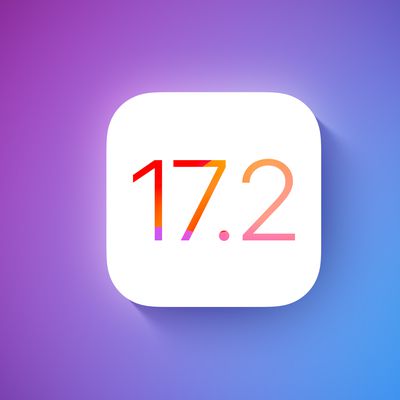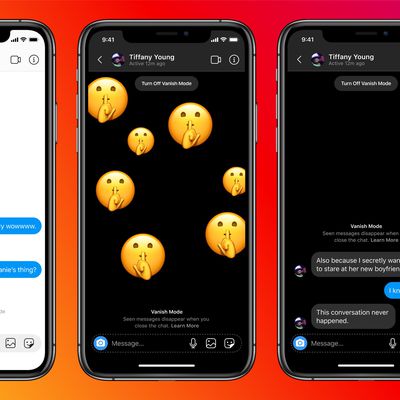Apple is still on track to switch to under-display Face ID technology next year that will provide more usable display area on iPhone 16 Pro models, claims a new report out of Korea.

Apple is set to transition to under-screen Face ID on iPhone 16 Pro models in 2024, followed by under-screen Face ID and an under-screen front camera on iPhone 18 Pro models in 2026, according to respected display industry consultant Ross Young.
In line with this roadmap, according to a new report from The Elec, Apple should not have any major difficulties securing the technology necessary for external light to be able to penetrate the display and enter the TrueDepth camera system that makes Face ID possible, given the current state of smartphone production processes.
From the display point of view, Underpanel Face ID has the same principle as the underpanel camera (UPC) that Samsung Display is applying to Samsung Electronics' foldable phone Galaxy Z Fold series. UPC also mounts a front camera module under the display, so the camera lens hole is not visible when the camera function is not in use. Currently, camera module specifications have been compromised at the level of 4 million pixels to implement UPC. This is because the UPC space must be divided so that some support the display screen function, and the other supports the camera function by accepting external light. Recently, the front camera specifications of premium smartphones far exceed 10 million pixels.
"If the current trend continues," the report adds, "Apple can apply Underpanel Face ID to the [non-Pro] iPhone series lineup in 2025, and apply UPC to the [Pro] iPhone series lineup in 2026."
This isn't the first time Korean-language website's predictions have lined up with a roadmap set out by Young in May 2022. Young outlined a cycle where Apple will alternate between the Pro and the non-Pro models each year when introducing revised display cutouts or new under-display technology.
Based on the technical challenges remaining for under panel cameras to meet discerning brands quality requirements as well as panel manufacturers' cost requirements, I still believe this roadmap makes sense for the iPhone. pic.twitter.com/3ck5X3sVcL — Ross Young (@DSCCRoss) May 10, 2022
The Pro models will be first to feature new display innovations, as first seen last year with the Dynamic Island exclusive to the iPhone 14 Pro and iPhone 14 Pro Max, while the iPhone 14 and iPhone 14 Plus were left with the same "notch" as the iPhone 13. This year, the Dynamic Island is expected to come to all iPhone 15 models.
Based on this cycle, each configuration of display cutouts and under-screen technology will persist for a maximum of two generations on each iPhone, before all models in Apple's future iPhone lineups have a true unconstrained fullscreen display, which is expected to happen in 2027.























Top Rated Comments
I barely purchased my 14 Pro Max and starting to regret not waiting 10 more years for the latest feature. ?
"Just one more year"
I love articles like these. excited for what’s to come.